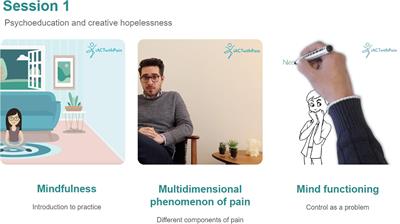EDITORIAL
Published on 15 Nov 2022
Editorial: User psychology and behavior regarding healthcare IT
doi 10.3389/fpsyg.2022.1068517
- 892 views
- 1 citation
6,493
Total downloads
24k
Total views and downloads
You will be redirected to our submission process.
EDITORIAL
Published on 15 Nov 2022
BRIEF RESEARCH REPORT
Published on 22 Jul 2022

BRIEF RESEARCH REPORT
Published on 22 Jul 2022

ORIGINAL RESEARCH
Published on 16 Jun 2022

ORIGINAL RESEARCH
Published on 10 Jun 2022

ORIGINAL RESEARCH
Published on 26 May 2022

ORIGINAL RESEARCH
Published on 04 May 2022

ORIGINAL RESEARCH
Published on 08 Apr 2022

ORIGINAL RESEARCH
Published on 20 Jan 2022

ORIGINAL RESEARCH
Published on 12 Jan 2022

